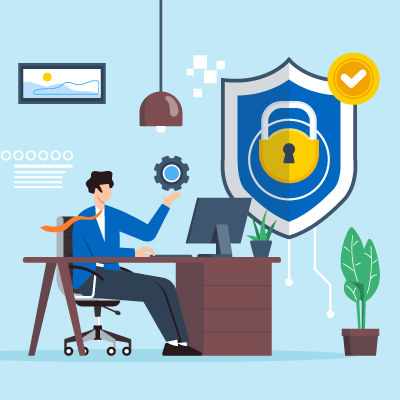
Of all your business’ potential cybersecurity vulnerabilities, one can more easily bring your organization to its knees than any other… but if this vulnerability is addressed correctly, you could instead see considerable benefits.
Of course, the vulnerability I’m referring to is your team itself. Human error, in its many forms, can easily leave you vulnerable if you aren’t careful about preparing yourself and the rest of your staff to act with cybersecurity in mind.
Let’s discuss how you should encourage your team to behave around their IT, both at home and in the workplace, to reduce the chance of successful phishing or other cybersecurity issues. These recommendations come directly from CISA—the Cybersecurity and Infrastructure Security Agency—and, while intended for the private home user, still apply directly to the office.
How Your Team Can Boost Your Business’ Security
They Know Phishing When They See It
Phishing remains a serious cybersecurity issue that your team needs to be aware of and on the lookout for. These scams work to trick employees, manipulating them into acting against a company’s interests by sharing sensitive information with those responsible or giving them access to resources they shouldn’t be able to access. Phishing is particularly dangerous because it can open your business up to larger-scale scams and attacks… after all, the attackers will now have an in.
However, if your team is adequately trained to know what phishing looks like and how to mitigate the attempts they spot during their workdays, they will be far less likely to be taken in by these messages. You should also make sure everyone is familiar with your official processes for dealing with suspected phishing.
They Maintain Passwords that Meet Standards
It’s far too easy to let the temptation to let password standards slip a little and take shortcuts when coming up with new credentials… maybe some of your team has cut corners and recycled the same password for a few of their identity authentication requirements.
This is, in a word, unacceptable.
You need to impress upon your team how important it is that they use unique and sufficiently secure passwords for every single account they have. Ideally, you should give them password management software to make it significantly easier to manage this standard.
They Activate Multi-Factor Authentication
One of the easiest ways to keep something secure is to put more locks on it. Multi-factor authentication (MFA) plays this role, as it takes the standard username-password combination (which has never been a particularly secure option) and adds another factor a user needs to provide before they can gain access.
The username marks the identity, the password authenticates it, and the additional requirement—be it a code generated in an app or a biometric scan—confirms it again.
MFA is a relatively simple means of ensuring that only your team members can view and edit your data. This is why we recommend implementing it wherever it is available as a basic best practice.
They Keep Software Up-to-Date
Software updates are a huge pain. That said, they are hugely necessary, as the vast majority help to mitigate security issues and protect your business from the consequences of cybercrime. They also help your software work better overall, boosting your productivity on top of the security benefits. Granted, this responsibility falls more on your IT team, but even if the rest of your team just understands the importance of updates, you’re more likely to see them accepted in the office.
We Can Help, Too
From the practical implementation of cybersecurity protections to the training that your team will need, BondarTech is here to help your business remain secure. Give us a call at (315) 733-8324 to find out how.

